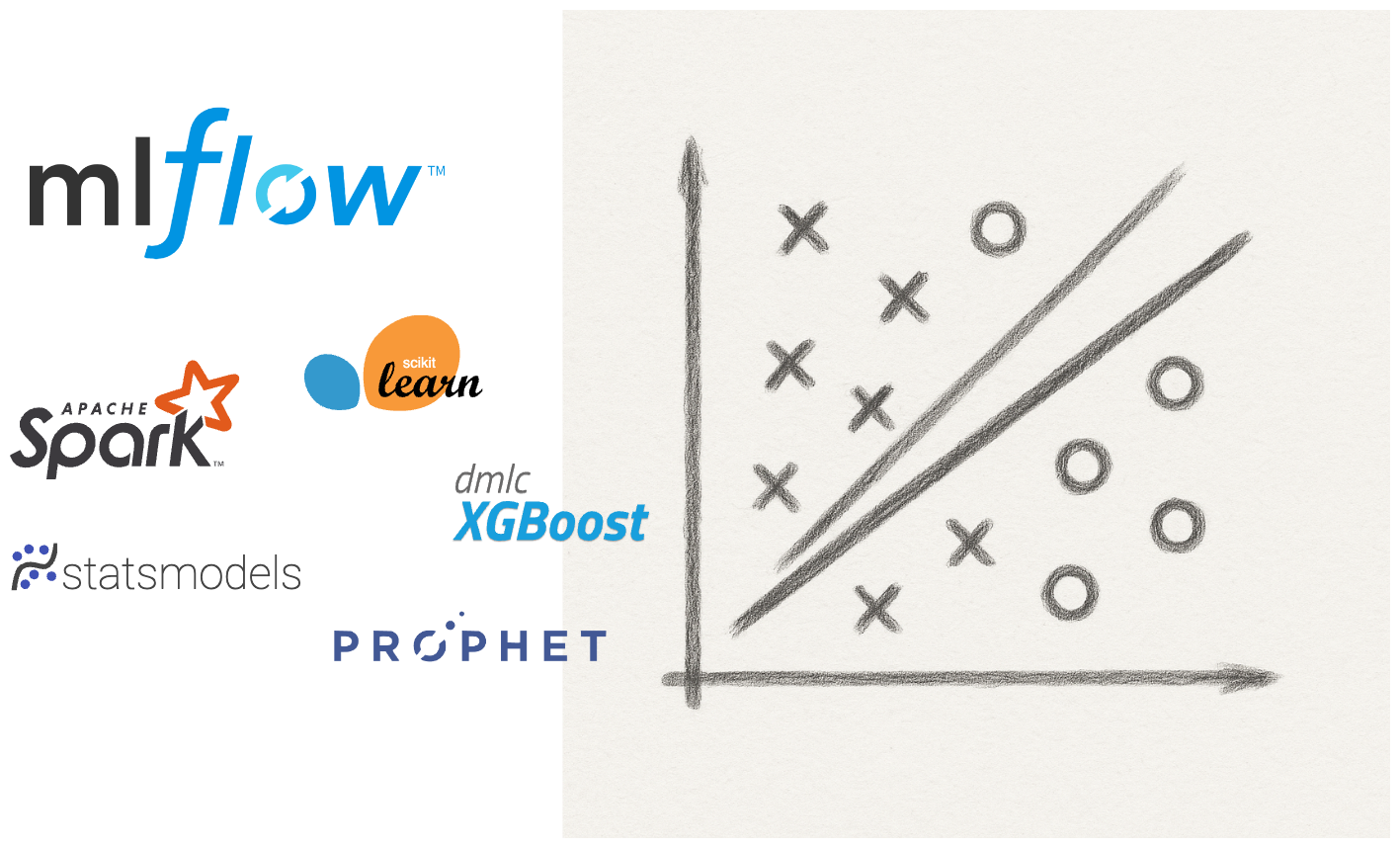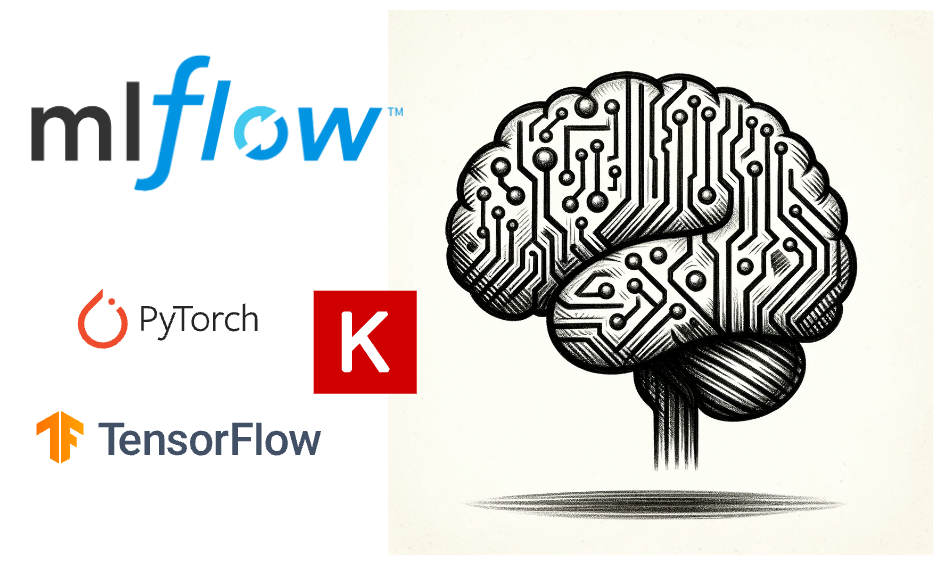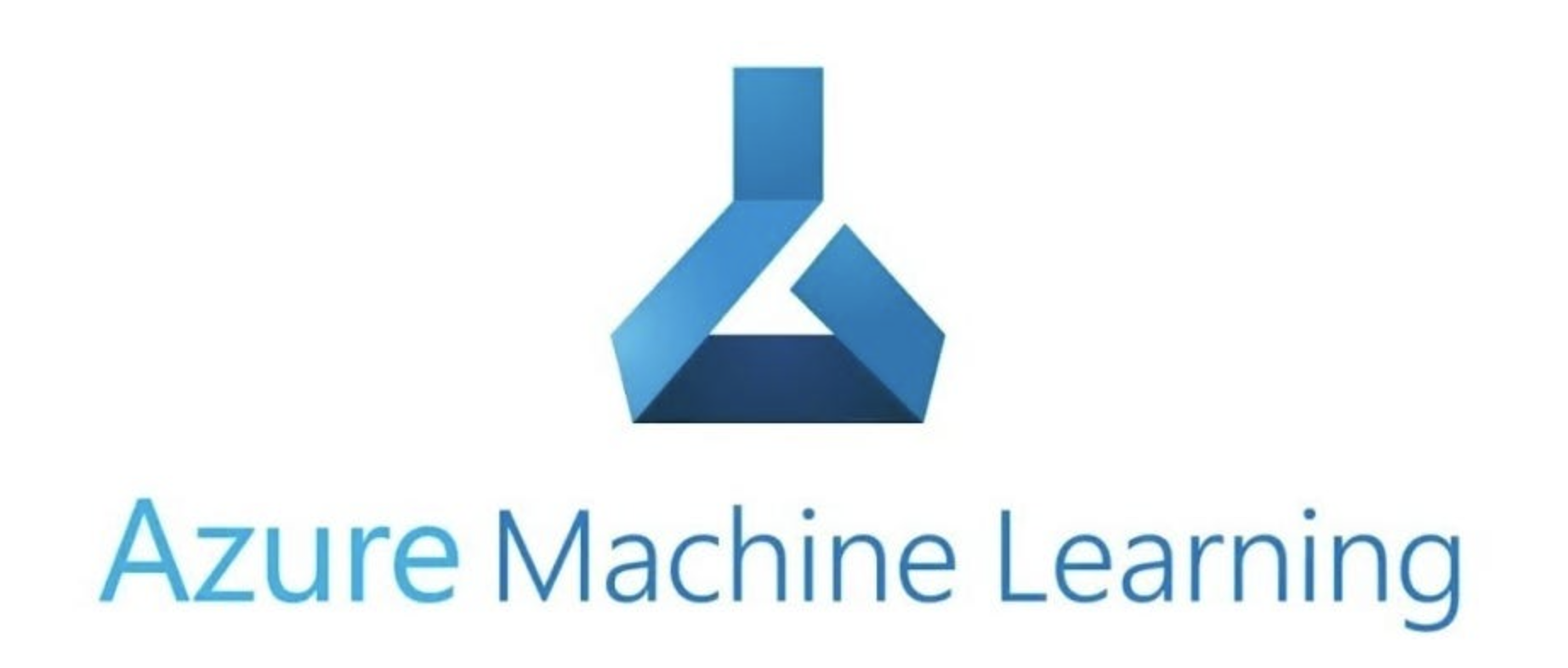MLflow: A Tool for Managing the Machine Learning Lifecycle
MLflow is an open-source platform, purpose-built to assist machine learning practitioners and teams in handling the complexities of the machine learning process. MLflow focuses on the full lifecycle for machine learning projects, ensuring that each phase is manageable, traceable, and reproducible.
MLflow Getting Started Resources
If this is your first time exploring MLflow, the tutorials and guides here are a great place to start. The emphasis in each of these is getting you up to speed as quickly as possible with the basic functionality, terms, APIs, and general best practices of using MLflow in order to enhance your learning in area-specific guides and tutorials.
- Learn about MLflow
- MLflow Basics
- MLflow Models Introduction
- Traditional ML
- Deep Learning
Learn about the core components of MLflow
Quickstarts
Get Started with MLflow in our 5-minute tutorial
Guides
Learn the core components of MLflow with this in-depth guide to Tracking
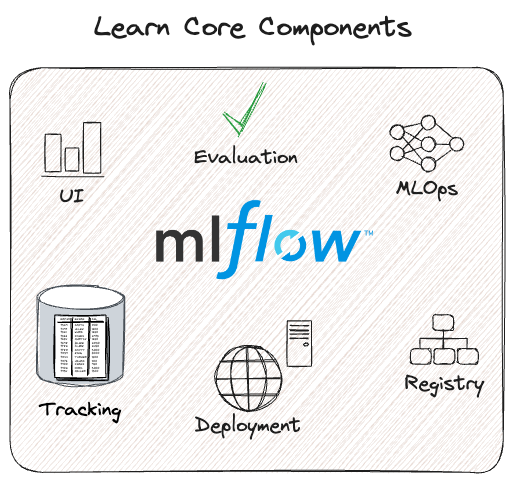
Learn how to perform common tasks in MLflow
Guides
Autologging guide for effortless model tracking
Model Signatures and type validation in MLflow
Hyperparameter tuning with MLflow
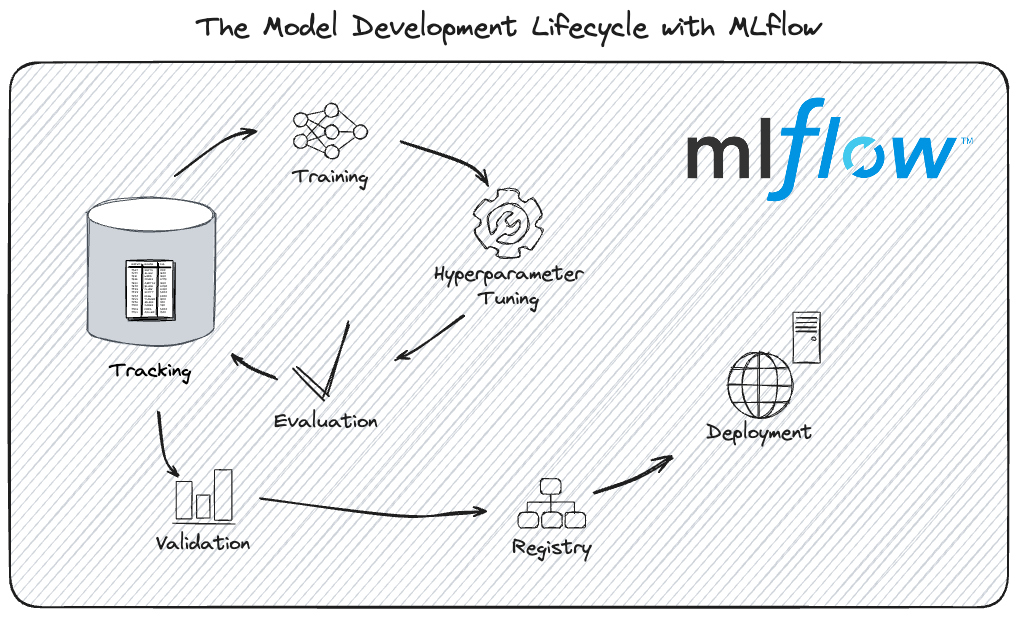
Learn about MLflow Model-related topics
Guides
Introduction to Custom Python Models
Model dependency management in MLflow
Model Signatures and type validation
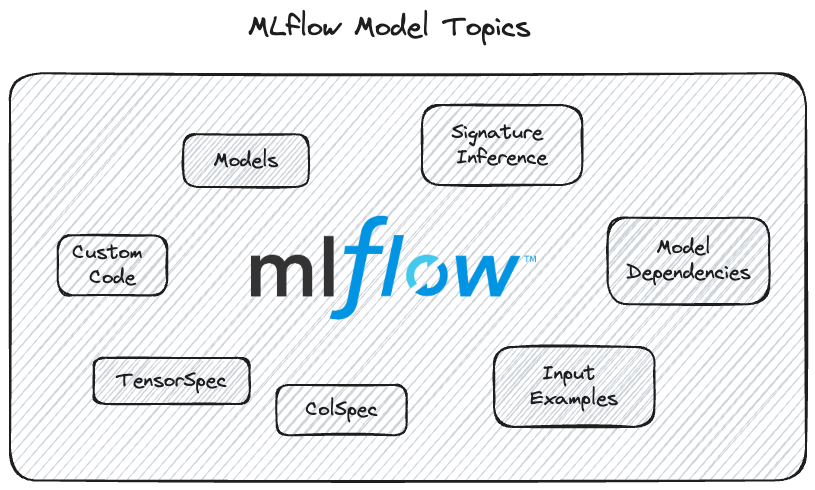
Traditional ML and Deep Learning with MLflow
MLflow provides comprehensive support for traditional machine learning and deep learning workflows. From experiment tracking and model versioning to deployment and monitoring, MLflow streamlines every aspect of the ML lifecycle. Whether you're working with scikit-learn models, training deep neural networks, or managing complex ML pipelines, MLflow provides the tools you need to build reliable, scalable machine learning systems.
Explore the core MLflow capabilities and integrations below to enhance your ML development workflow!
- Tracking & Experiments
- Model Registry
- Model Deployment
- ML Library Integrations
- Model Evaluation
Track experiments and manage your ML development
Core Features
MLflow Tracking provides comprehensive experiment logging, parameter tracking, metrics visualization, and artifact management.
Key Benefits:
- Experiment Organization: Track and compare multiple model experiments
- Metric Visualization: Built-in plots and charts for model performance
- Artifact Storage: Store models, plots, and other files with each run
- Collaboration: Share experiments and results across teams
Guides
![]()
Manage model versions and lifecycle
Core Features
MLflow Model Registry provides centralized model versioning, stage management, and model lineage tracking.
Key Benefits:
- Version Control: Track model versions with automatic lineage
- Stage Management: Promote models through staging, production, and archived stages
- Collaboration: Team-based model review and approval workflows
- Model Discovery: Search and discover models across your organization
Guides
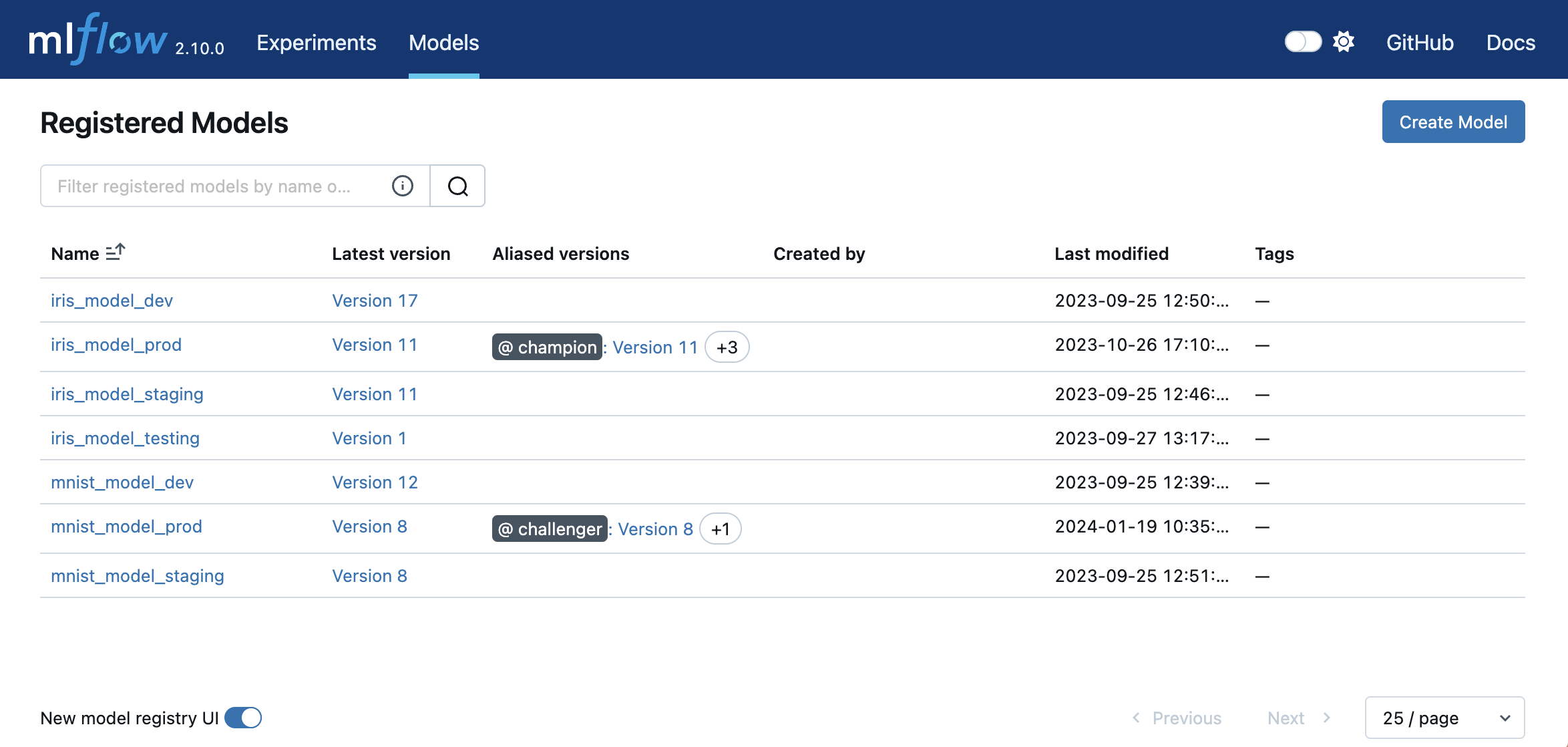
Deploy models to production environments
Core Features
MLflow Deployment supports multiple deployment targets including REST APIs, cloud platforms, and edge devices.
Key Benefits:
- Multiple Targets: Deploy to local servers, cloud platforms, or containerized - enronments
- Model Serving: Built-in REST API serving with automatic input validation
- Batch Inference: Support for batch scoring and offline predictions
- Production Ready: Scalable deployment options for enterprise use
Guides
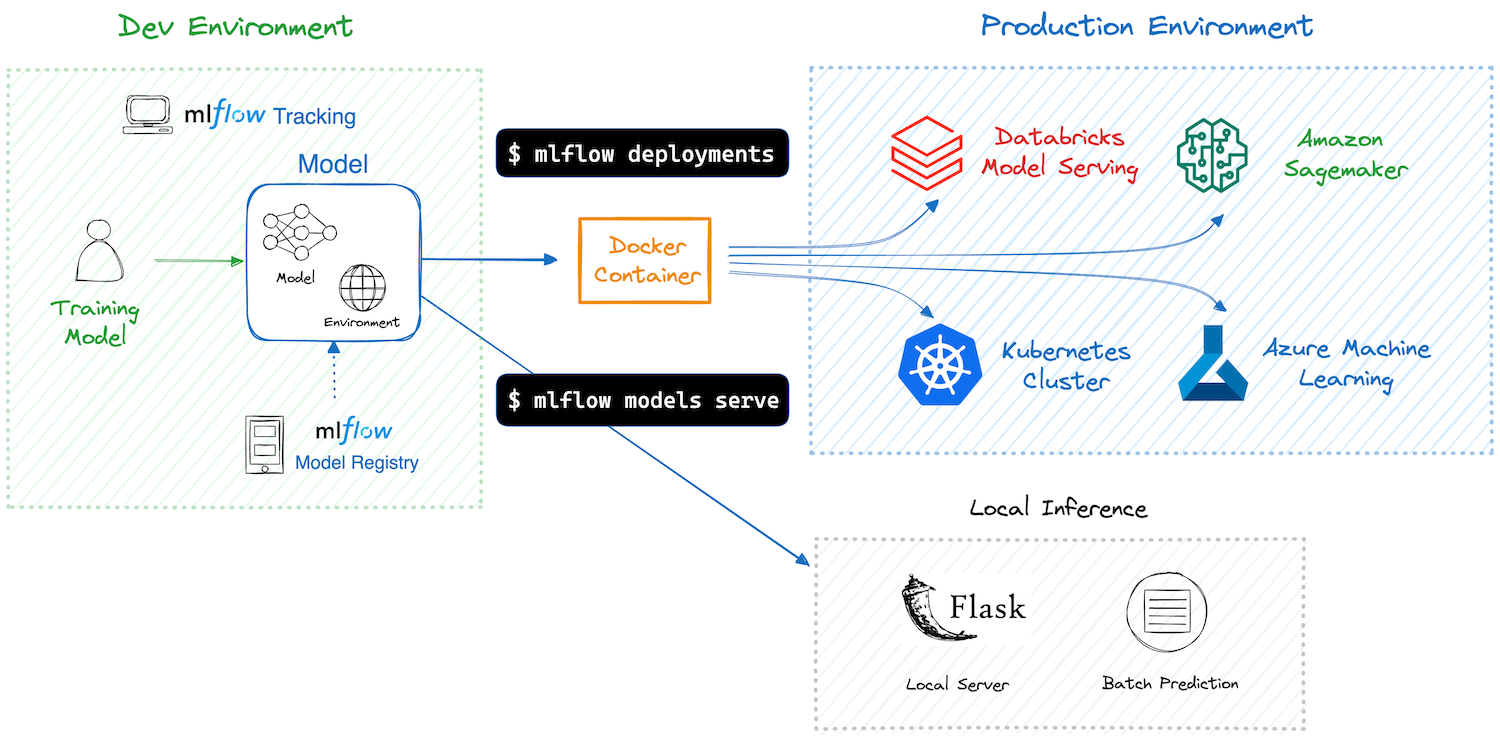
Explore Native MLflow ML Library Integrations
Evaluate and validate your ML models
Core Features
MLflow Evaluation provides comprehensive model validation tools, automated metrics calculation, and model comparison capabilities.
Key Benefits:
- Automated Metrics: Built-in evaluation metrics for classification, regression, and - mo
- Custom Evaluators: Create custom evaluation functions for domain-specific metrics
- Model Comparison: Compare multiple models and versions side-by-side
- Validation Datasets: Track evaluation datasets and ensure reproducible results
Guides
Learn how to evaluate your ML models with MLflow
Discover custom evaluation metrics and functions
Compare models with MLflow Model Comparison
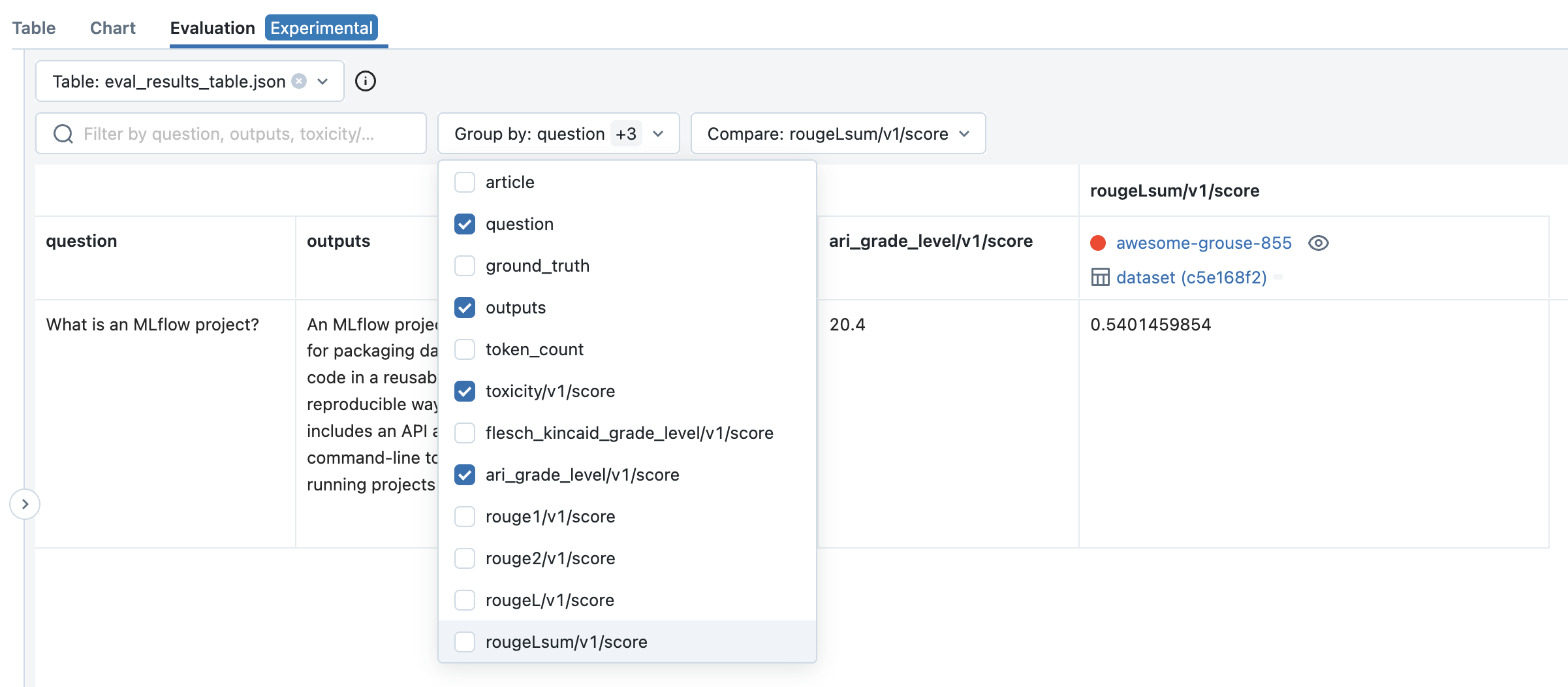
Running MLflow Anywhere
MLflow can be used in a variety of environments, including your local environment, on-premises clusters, cloud platforms, and managed services. Being an open-source platform, MLflow is vendor-neutral; no matter where you are doing machine learning, you have access to the MLflow's core capabilities sets such as tracking, evaluation, observability, and more.
